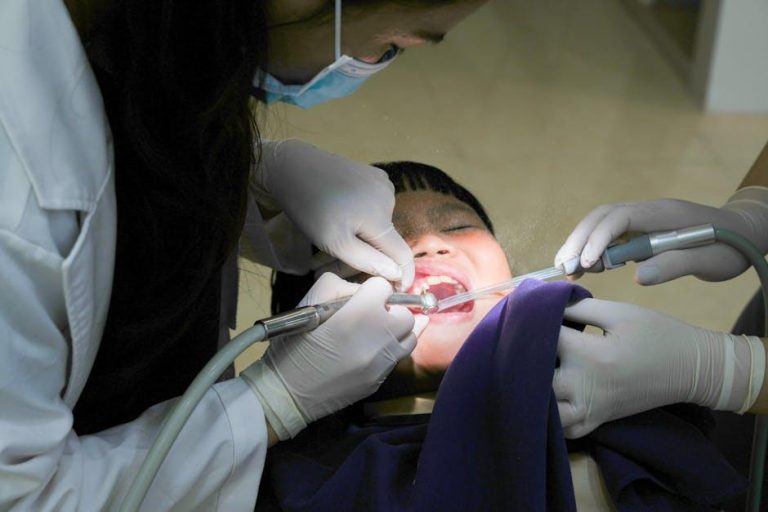Child Death After Dental Procedure — The Questions Parents Should Ask Their Dentist
Children’s dental care is an essential aspect of their overall health, but recent reports of child death after dental procedures have sparked concern among parents nationwide. NBC 7 San Diego has highlighted some heartbreaking cases where unexpected complications occurred, raising vital questions about safety, transparency, and the quality of pediatric dental care. As a parent, it’s crucial to know the right questions to ask your child’s dentist to ensure their well-being during visits.
Understanding the Risks: Why Child Death After Dental Procedure Happens
Though rare, fatalities following dental procedures in children often result from factors like anesthesia complications, undiagnosed medical conditions, or emergency response delays. Knowing these risks helps parents advocate effectively for their child.
- Anesthesia risks: Children are more sensitive to sedation and general anesthesia, especially in outpatient dental surgeries.
- Medical history importance: Undisclosed allergies or underlying diseases can complicate procedures.
- Procedure complexity: Extensive dental work may require sedation or longer chair time, increasing risk.
Key Questions Parents Should Ask Their Dentist
When preparing for your child’s dental appointment, asking targeted questions helps uncover the safety protocols, expertise, and emergency preparedness of the dental practice.
| Question | Reason to Ask |
|---|---|
| What anesthesia or sedation methods do you use for children? | To understand potential risks and ensure safe administration tailored to your child. |
| Is the dentist specially trained in pediatric dentistry and emergency care? | Pediatric dental expertise reduces risks and improves handling of complications. |
| How does the office screen for allergies or medical conditions before procedures? | Prevention of adverse reactions by thorough medical history assessment. |
| What emergency protocols and equipment are in place? | Immediate response capability in emergencies can save lives. |
| How do you monitor a child’s vitals during sedation? | Continuous monitoring ensures quick detection of distress. |
| What post-procedure care do you recommend to avoid complications? | Proper follow-up helps identify and manage issues early. |
Practical Tips for Preparing Your Child’s Dental Visit
Parents can take proactive steps to minimize risks and ease their child’s dental experience by following these tips:
- Complete medical disclosure: Provide full and accurate medical history, including medications, allergies, and prior reactions to sedation.
- Discuss concerns openly: Share fears or past negative dental experiences with the dentist.
- Choose pediatric specialists: Opt for dentists certified in pediatric care with anesthesia training.
- Stay informed on sedation: Understand the type and dosage of sedation planned.
- Follow pre-appointment instructions: For example, fasting guidelines if sedation is used.
- Observe post-procedure recovery: Monitor your child closely for unusual symptoms.
Case Studies Shared by NBC 7 San Diego
In light of some unfortunate incidents, NBC 7 San Diego reported on cases where young patients experienced fatal complications linked to dental visits. These stories serve as a cautionary reminder that safety protocols must never be taken for granted.
Case 1: Anesthesia Reaction in a Toddler
A toddler undergoing a routine tooth extraction experienced a severe allergic reaction to sedation, which was not caught due to incomplete medical history disclosure. Immediate intervention was delayed, resulting in a tragic outcome.
Case 2: Undiagnosed Heart Condition
A child with an unknown congenital heart defect underwent a dental procedure under general anesthesia. The stress of sedation triggered a fatal cardiac event, highlighting the need for thorough pre-procedure screening.
Benefits of Asking Questions and Being Proactive
By engaging actively with your dental care provider, you empower yourself to:
- Ensure your child’s safety during dental procedures.
- Reduce anxiety and build trust with the dental team.
- Detect and prevent potential risks before they escalate.
- Feel confident about dental visits, improving your child’s cooperation.
Additional Resources for Parents
To stay informed, trusted resources include:
Conclusion
Hearing about child death after dental procedures is distressing, but parents have powerful tools at their disposal to safeguard their children’s health. The key lies in asking the right questions, working closely with qualified pediatric dental professionals, and staying informed about anesthesia and emergency protocols. With vigilance and open communication, you can help ensure your child’s dental experience is safe, comfortable, and positive. Always remember: your child’s well-being begins with your voice and advocacy.


